PrEP, PEP and Chems
PrEP
PrEP is a preventative medicine for HIV negative individuals to reduce the risk of HIV infection. It consists of 2 antiretroviral drugs – Tenofovir and Emtricitabine. The combination of these medicines Is commonly known as Truvada, but there are other brand names that contain the same drugs. Taking PrEP enables you to protect yourself and the people you have sex with. Truvada works by blocking the replication of the HIV virus.
PrEP provides a 92% – 99% reduction in HIV risk for HIV-negative individuals who take the pill as directed.
You can view our service PrEP leaflet by clicking here.
PEP
PEP stands for post-exposure prophylaxis. PEP is a treatment that can reduce the likelihood of a HIV negative person getting HIV after they have been exposed to the virus. It involves taking antiretroviral medicines (ART) after being potentially exposed to HIV. PEP must be started within 72 hours after a recent possible exposure to HIV, but the sooner you start PEP, the better.
PEP should be used only in emergency situations. It’s not meant for regular use by people who may be exposed to HIV frequently. PEP is not intended to replace regular use of other HIV prevention methods, such as the consistent use of condoms during sex.
Is PEP right for me?
The decision about whether to use PEP depends on a number of factors;
- The level of risk;
- If you are at ongoing risk for HIV, PEP may not be suitable you can talk this through with the sexual health team
PEP may be used if;
- You think you could have been exposed to HIV during sex
- Have shared needles or drug preparation equipment (“works”)
- Were sexually assaulted
In addition, PEP may be prescribed for a health care worker following a possible exposure to HIV at work, for example, from a needlestick injury.
- How quickly you access PEP;
- it must be started within 72 hours
- According to the research, PEP will probably not prevent HIV infection if it is started later than 72 hours after a person is exposed to HIV
- PEP is effective in preventing HIV infection when it’s taken correctly, but it’s not 100% effective
- Your willingness to adhere (stick) to the treatment;
- You will need to take HIV medication for 28 days
- You may need to return to the services for further tests
- PEP is safe but may cause side effects like nausea in some people. These side effects can be treated and aren’t life-threatening
According to the research, PEP will probably not prevent HIV infection if it is started later than 72 hours after a person is exposed to HIV
If you think you were recently exposed to HIV, contact the service immediately (0800 7720478) or go to Accident and Emergency right away. They will help to decide whether you should receive PEP.
Click here for more information about PEP
HIV
We offer testing for HIV. If you receive a positive test result, you will be referred to https://www.worcsacute.nhs.uk/hiv-services/ who will provide your care and support
Chemsex
ChemSex (also called Party and play) is the consumption of drugs to facilitate sexual activity. Mostly amongst men who have sex with men.
These recreational drug users may engage in high-risk sexual activities under the influence of psychoactive drugs. The commonly used drugs are mephedrone, γ-hydroxybutyrate (GHB), γ-butyrolactone (GBL), and crystallised methamphetamine. In the case of Mephedrone and crystal meth, these are physiological stimulants, increasing heart rate and blood pressure, as well as triggering euphoria and sexual arousal. Whereas, GHB and GBL are a powerful psychological disinhibitor, that also have a mild anaesthetic effect.
Some HIV medications interact with chem, and may increase your risk of accidental overdose and death. For advice about interactions with your HIV medications, ask in clinic. You can check for some interactions here.
Because Chemsex has a disinhibited effect, it comes with lots of risks, if you choose to continue to engage in recreational drug use, you can follow some simple steps to help manage and reduced your levels of risk:
Set your boundaries beforehand
Having sex without a condom puts you at high risk of getting HIV and STIs. It may also be something you don’t feel comfortable doing when not under the influence of drugs. If this is the case then agree this at the outset, it is important to always be assertive in what you want, and what you don’t want to do.
Be informed
Make sure you understand the risks involved with taking these drugs. This will help you plan how to manage them. For more information visit http://lgbt.foundation/how-we-can-help-you/drug-and-alcohol-support/drug-types#Chemsex
Consider PrEP
PrEP may help to protect you from HIV. PrEP may protect from HIV, but not from other STIs, so it is important that if you are using PrEP, you get a full screening every 3 months.
Talk to someone beforehand
It’s a good idea to let someone know you where you are going, and what you’re planning to do. Then, if you start feeling unsafe, you can contact them for help.
Get tested regularly
Get screened for Sexually Transmitted Infections, HIV and hepatitis C.
If you’re HIV negative, and concerned about the HIV risks if engaging in ChemSex, you may be able to access PEP, a medicine which may help to protect you from becoming infected if taken within 72 hours of the possible exposure.
Get help
If you want to talk to someone about how ChemSex is affecting your wellbeing and your sexual health, and how you can make positive changes, then contacts us on 0800 7720478
Click here for more information about ChemSex


